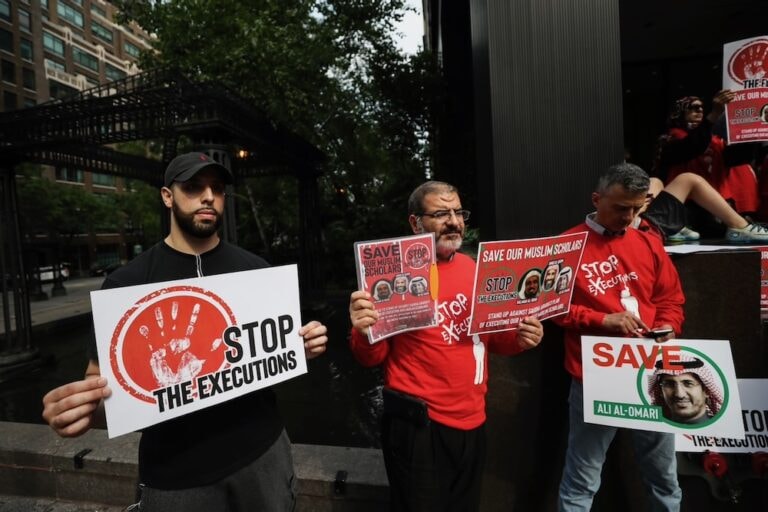According to Amnesty International, its website was blocked following its criticism of a draft anti-terror law that would stifle peaceful protest in the kingdom.
(ANHRI/IFEX) – 26 July 2011 – ANHRI condemns the blocking of access to Amnesty International’s website by the Saudi Authorities, due to the organisation’s criticism of the draft anti-terror law that would restrict the right of Saudi citizens to organise any peaceful protests in the kingdom. The draft allows for a minimum 10-year prison sentence for “questioning the integrity” of the king or the Crown Prince.
Amnesty International announced on 25 July that “access to Amnesty International’s website has been blocked in Saudi Arabia (. . .) following the organisation’s criticism of a draft anti-terror law that would stifle peaceful protest in the kingdom.” The website was blocked in Saudi Arabia a few days after the organisation published its objection to the draft law, describing it as “oppressive”.
The draft law allows for suspects to be held in incommunicado detention for up to 120 days, or for longer periods – potentially indefinitely – if authorised by a specialised court, and for the denial of their right to challenge the lawfulness of their detention. In addition, the ambiguity of the definition of “terrorist crimes” enables authorities to use the law to punish people for the peaceful expression of their views. Moreover, there is an absence of any judicial oversight, in addition to the major issue of the minimum sentence of 10 years for casting doubt on the “integrity” of the King.
“Saudi Arabia is at the top of the list of countries that pursue oppressive policies that endanger civil liberties. Its current attempt to pass a law restricting freedoms and codifying repression is a desperate one, and will surely fail as it has in other totalitarian regimes in the Arab world. The practices of repression, confiscation, exclusion, and censorship are signs that the regime is afraid of the movement for change that has affected most countries of the Arab world,” said ANHRI.


